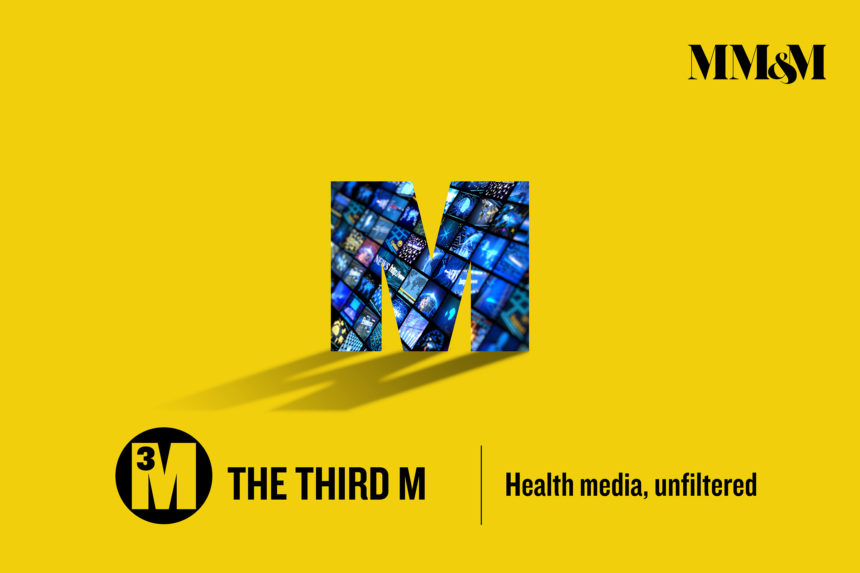March is Bleeding Disorders Awareness Month. It is Brain Injury Awareness Month, Save Your Vision Month, National MS Education and Awareness Month and National Endometriosis Awareness Month. This week has been designated National Pulmonary Rehabilitation Week and Patient Safety Awareness Week. Tomorrow is National Women and Girls HIV/AIDS Awareness Day, Thursday is World Kidney Day and – we see you, fellow napping enthusiasts – Friday is World Sleep Day.
But owing to the rapidly unfolding public health crisis that is COVID-19, it seems likely that some if not all of these efforts will fall short of their awareness goals. Yes, March is fairly well saturated with health-related efforts to begin with, but coverage of the rapid spread of coronavirus, and its potential impact on everything from the global supply chain to the upcoming summer Olympics, has dominated mainstream and health media alike in recent weeks – and nobody expects this to change anytime soon.
“We are in the early phases of this and none of us know what the new normal will be,” said GCI Health CEO Wendy Lund.
At the same time, none of the organizations that had the bad fortune to see their long-gestating awareness campaigns coincide with the coronavirus outbreak appear to be taking the attention-generation challenge lying down. By way of example, consider Fight Colorectal Cancer (Fight CRC), the group behind this month’s National Colorectal Cancer Awareness Month effort. The group had an ambitious slate of plans in place for March, including its 14th annual Call On Congress journey to Washington, D.C. Last year, 150 advocates from 33 states spent three days in the capitol, meeting with a slew of lawmakers.
Owing to concerns around coronavirus, that event will now be a virtual one – and one that mission champion VP, Fight CRC Scott Wilson, a stage 4 colorectal cancer survivor himself, believes will meet if not exceed its initial goals. “Colorectal cancer won’t stop for the virus and neither will our awareness efforts, even if adjustments have to be made,” he said.
Wilson reports that, in the two weeks leading up and into the start of the group’s March Fight CRC push, it saw a 51% uptick in web traffic versus the year-ago period. He adds that coronavirus hasn’t strong-armed Fight CRC’s #StrongArmSelfie out of the social mediasphere, with the campaign having generated 1.4 million online impressions as of Friday morning.
“The media and awareness strategies that we already had in place are working well,” Wilson said. “We are able to utilize the compelling survivor and caregiver stories of our advocates to help drive awareness efforts… The strategy behind leveraging a specific hashtag allows us to focus our message and gives supporters an easy way to participate, and allows our efforts to be measurable online.”
Dolores Machuca-Ruiz, chief marketing officer for the National Kidney Foundation, said her group’s National Kidney Month awareness push has similarly proceeded more or less as planned. Asked whether it’s an either/or situation vis-à-vis coverage of coronavirus and health-related awareness campaigns, she responded, “We think there is room for both. While it is impossible to predict the impact of coronavirus and its effect on efforts like National Kidney Month, it is also important to provide a sense of continuity during an uncertain time and continue providing the support NKF offers to kidney patients and their families.”
Furthermore, the organization isn’t delaying, downsizing or otherwise tweaking the year-long “Are You The 33%?” campaign, launched on March 1 and targeting the one in three American adults at risk of developing life-threatening kidney disease. “Millions of American adults are walking around with kidney disease and don’t know it,” Machuca-Ruiz said. “Put simply, while the nation is rightly focused on coronavirus now, it doesn’t mean that the other pressing issues need to be ignored. When this crisis passes, life-threatening kidney disease will still be with us and will still need to be dealt with… We are optimistic we will achieve our health awareness goals.”
Some communicators even see upside – relatively speaking – for advocacy groups whose messaging or campaigns have been overwhelmed by coronavirus coverage. “The scale and scope of this novel outbreak is forcing people worldwide to think about health and health preparedness in real, tangible ways,” noted Project HOPE VP, chief development and communications officer Cinira Baldi. “So while COVID-19 is and will likely remain the health headline for some time to come, there are likely opportunities to layer in additional messaging that will resonate with those who are newly engaged on health issues.”
That said, it’s hard to find a leader of a health-adjacent organizations who isn’t directing his or her energies within, and urging others to do the same. And this is a good thing.
“The number-one priority for any organization right now has to be the health and safety of its employees and clients,” said Havas Health & You CEO Donna Murphy. “Careful planning and decision-making around large events in the coming weeks or months has the potential to have profound impact on the progression of this situation.”







